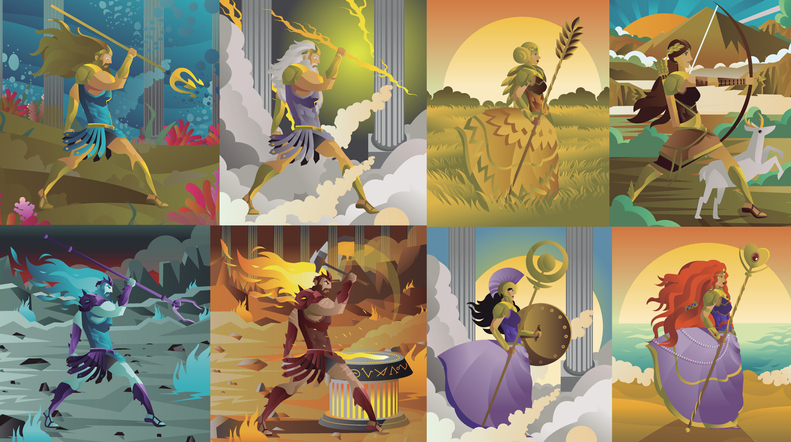Back in junior high, you probably learned about the pantheon of Ancient Greek gods and goddesses — Zeus, Apollo, Aphrodite, and so forth. Your teachers probably didn’t cover these more obscure — and very specific — grand deities.

Wandering planet gods
The Greeks believed in “Astra Planeti,” a special class of gods that ruled over distant of “wandering” planets. Venus was so important that it had two different gods. Eosphorus, also known as Phosphorus (which means “bringer of light” and is the namesake of the element phosphorus) was god of Venus only during the morning. At night time, when Venus could be visible in the sky, Heserpus took over as the god of Venus.
Food related gods
Food is important to any culture, and the Greeks had a lot of gods related to the growth and harvesting of food, as well as a few related to very specific food production techniques. Take Aristaeus, the god of a few disciplines: beekeeping, cheesemaking, olive-growing, and herding.
Wine related gods
Wine was almost vital to ancient Greek culture, so much so that there were gods related to its consumption and even pairing. Acratopotes served as the god of unmixed wine, while Ceraon was a demi-god of mealtime, which included the mixing of foods with wine.
From the 20th century to the Old West, from the Age of Enlightenment to the Dark Ages, Strange History is overflowing with mysterious artifacts, macabre legends, kooky inventions, reality-challenged rulers, boneheaded blunders, and mind-blowing facts.
Witchcraft god
While the Greek pantheon offered an elaborate spiritual system, it didn’t preclude the existence of other phenomenon, such as witchcraft and necromancy. Hecate was the Greek goddess of witchcraft and necromancy, as well as, understandably, the moon.
Windy gods
The different winds from the four cardinal directions can behave in different ways, and as such the ancient Greeks gave each one its own God. These are the Anemoi, gods of the winds: Zephyros (west), Euros (east), Boreas (north), and Notos (south). They were depicted in artwork as horses, and their master was Aiolos, a.k.a., “The Horse Reiner.”
A god for everything!
They really did have a god for everything, even thinking of something too late and making excuses. Epimetheus was a titan (a god before the development of the “Olympian” gods like Zeus) who was the ruler of afterthought as well as the lord of excuses.
The ‘just in case’ god
Just in case they left anything out, the Greeks utilized The Unknown God, who ruled over anything not covered by another god.








